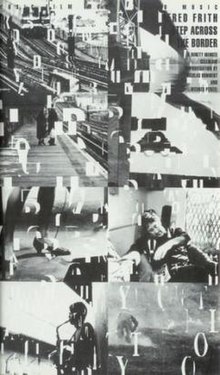
Jeremy Webster "Fred" Frith is an English multi-instrumentalist, composer, and improviser.
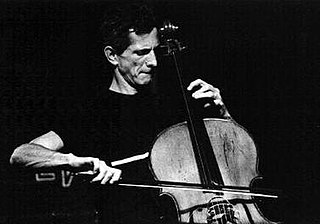
Thomas Henry Corra, better known as Tom Cora, was an American cellist and composer, best known for his improvisational performances in the field of experimental jazz and rock. He recorded with John Zorn, Butch Morris, and the Ex, and was a member of Curlew, Third Person and Skeleton Crew.

Skeleton Crew was an American experimental rock and jazz group from 1982 to 1986, comprising core members Fred Frith and Tom Cora, with Zeena Parkins joining later. Best known for their live improvisation performances where they played various instruments simultaneously, they also recorded two studio albums Learn to Talk (1984) and The Country of Blinds (1986). The group drew on music and themes from a number of sources, including world music, left-wing politics and pre-recorded tapes.

Zeena Parkins is an American composer and multi-instrumentalist active in experimental, free improvised, contemporary classical, and avant-jazz music; she is known for having "reinvented the harp". Parkins performs on standard harps, several custom electric harps, piano, and accordion. She is a 2019 Guggenheim Fellow and professor in the Music Department at Mills College.

Henry Cow were an English experimental rock group, founded at the University of Cambridge in 1968 by multi-instrumentalists Fred Frith and Tim Hodgkinson. Henry Cow's personnel fluctuated over their decade together, but drummer Chris Cutler, bassist John Greaves, and bassoonist/oboist Lindsay Cooper were important long-term members alongside Frith and Hodgkinson.

Chris Cutler is an English percussionist, composer, lyricist and music theorist. Best known for his work with English avant-rock group Henry Cow, Cutler was also a member and drummer of other bands, including Art Bears, News from Babel, Pere Ubu and (briefly) Gong/Mothergong. He has collaborated with many musicians and groups, including Fred Frith, Lindsay Cooper, Zeena Parkins, Peter Blegvad, Telectu and The Residents, and has appeared on over 100 recordings. Cutler's career spans over four decades and he still performs actively throughout the world.

Timothy "Tim" George Hodgkinson is an English experimental music composer and performer, principally on reeds, lap steel guitar, and keyboards. He first became known as one of the core members of the British avant-rock group Henry Cow, which he formed with Fred Frith in 1968. After the demise of Henry Cow, he participated in numerous bands and projects, eventually concentrating on composing contemporary music and performing as an improviser.
René Lussier is a jazz guitarist based in Montreal, Quebec, Canada. He is a composer, guitarist, bass guitarist, percussionist, bass clarinetist, and singer. Lussier has collaborated with Fred Frith, Chris Cutler, Jean Derome, and Robert M. Lepage. He combines elements from several genres and is often referred to within the discourse of contemporary classical music or Musiques Actuelles in French.

Robert "Bob" Ostertag is an American musician, writer, and political activist based in San Francisco. He has published seven books, one feature film, a DVD, twenty-six albums, and collaborated with numerous musicians.

Speechless is a 1981 solo album by English guitarist, composer and improviser Fred Frith of the group Henry Cow. It was Frith's third solo album, and was originally released in the United States on LP record on the Residents' Ralph record label. It was the second of three solo albums Frith made for the label.

Fred Frith appears on over 400 recordings. This is a selection from bands he was/is a member of, collaborations with other bands and musicians, and his solo recordings. The year indicates when the album was first released. For a comprehensive discography, see the Discography of Fred Frith by Michel Ramond, Patrice Roussel and Stephane Vuilleumier.
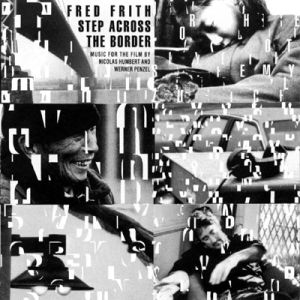
Step Across the Border is a soundtrack double album by English guitarist, composer and improvisor Fred Frith, of the 1990 avant-garde documentary film on Frith, Step Across the Border. The album features music from the film performed by Frith and other musicians, and covers ten years of Frith's musical career from 1979 to 1989.
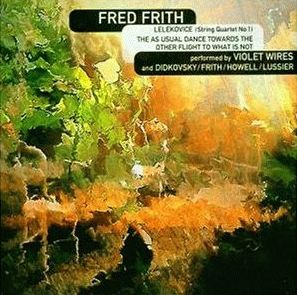
Quartets is a 1994 studio album by English guitarist, composer and improvisor Fred Frith. It consists of two compositions by Frith, "Lelekovice, String Quartet #1", performed by the Violet Wires String Quartet, and "The As Usual Dance Towards the Other Flight to What is Not", performed by an electric guitar quartet. Frith performs with the guitar quartet, but not with the string quartet.
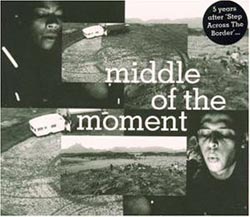
Middle of the Moment is a soundtrack by English guitarist, composer and improvisor Fred Frith, of the 1995 documentary film, Middle of the Moment by Nicolas Humbert and Werner Penzel.

Allies is a studio album by English guitarist, composer and improvisor Fred Frith. It is the second of a series of Music for Dance albums Frith made.
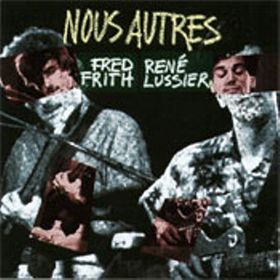
Nous Autres is a live album by Fred Frith and René Lussier recorded in October 1986 at the 4th Festival International de Musique Actuelle de Victoriaville in Victoriaville, Quebec, Canada. The live mixes were later enhanced with additional material recorded by Frith and Lussier in December 1986 at a studio in Montreal, Quebec, and the resulting album was released on LP in 1987. The album was released on CD in 1992 with four additional studio tracks recorded by Frith and Lussier in January 1992 in New York City.
Catherine Jauniaux is a Belgian avant-garde singer. She has been described as a "one-woman-orchestra", a "human sampler", and "one of the best kept secrets in the world of improvised music". Her solo album, Fluvial (1983) is regarded as one of her most accomplished works. She was married to the late American experimental cellist and composer Tom Cora.
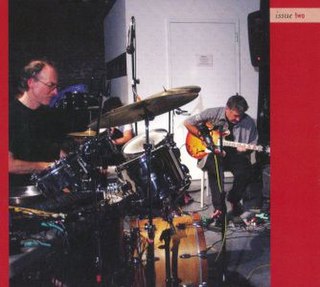
The Stone: Issue Two is a 2007 live album of improvised experimental music by Fred Frith and Chris Cutler. It was recorded at The Stone in New York City on 15 December 2006 and was one of four CDs released between 2006 and 2010 by Tzadik Records to raise funds for The Stone. It was Frith and Cutler's fourth collaborative album.

Cut Up the Border is a 2020 live album by English guitarist and composer Fred Frith, German film maker Nicolas Humbert and French sound artist Marc Parisotto. It comprises a collage of unused audio material recorded between 1988 and 1990 for the documentary film on Frith, Step Across the Border, overlaid with live improvisations by Frith performed in January 2019. The album was released by French record label RogueArt in January 2020.

Attention Span is a collaborative album by Bob Ostertag, Fred Frith and John Zorn, released in 1990 by RecRec Music.
